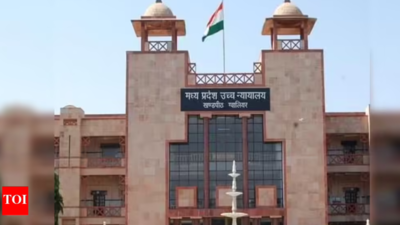ARTICLE AD BOX

BHOPAL: The Madhya Pradesh high court at Gwalior has ruled that WhatsApp messages between spouses can be used as evidence in matrimonial cases, even if collected without the other partner’s consent.The judgment was delivered by Justice Ashish Shroti in Miscellaneous Petition No. 3395 of 2023, filed by a woman challenging a Family Court order. The Family court had earlier allowed her estranged husband to present private WhatsApp conversations as part of a divorce case.The couple had married in December 2016 and had a daughter in October 2017. The husband later filed for divorce, alleging cruelty and adultery.
To support his claims, he submitted WhatsApp messages allegedly retrieved via a hidden application on his wife’s phone. These chats appeared to suggest an extramarital relationship.In response, the wife filed a petition under Section 9 of the Hindu Marriage Act, seeking restitution of conjugal rights. She also objected to the use of the chats, arguing that they were collected in breach of her privacy under Article 21 of the Constitution and violated provisions of the Information Technology Act.
Her legal team referred to various past rulings where courts disallowed illegally obtained personal communications, such as Neha Garg v. Vibhor Garg (2021) and Rayala M. Bhuvaneswari v. Nagaphanender Rayala (2008).However, the High Court rejected her objections, stating that under Section 14 of the Family Courts Act, 1984, courts are allowed to accept any material that helps in settling family disputes—even if it would normally be inadmissible under the Indian Evidence Act.Justice Shroti pointed out that Family Courts follow relaxed rules of evidence due to the private and sensitive nature of matrimonial issues. He cited Supreme Court judgments, including R M Malkani v. State of Maharashtra (1973) and State (NCT of Delhi) v. Navjot Sandhu (2005), to show that evidence obtained unlawfully can still be considered if it is relevant and genuine.While acknowledging the significance of the right to privacy, the court clarified that it is not absolute and must be balanced with the right to a fair trial.
Justice Shroti stated that when two rights under Article 21 are in conflict—privacy versus fair trial—the latter must prevail in the interest of justice.He also referred to Section 122 of the Indian Evidence Act, which generally protects marital communication, but allows exceptions in cases of legal disputes between spouses.The court noted that several High Courts, including those in Delhi, Bombay, and Rajasthan, have supported the use of digital records in family matters.Justice Shroti made it clear that accepting evidence does not mean it is proven—it must still be verified. He advised Family Courts to use safeguards such as confirming authenticity, holding in-camera hearings when needed, and maintaining decorum. The judgment also clarified that admitting illegally obtained evidence does not protect the person from possible civil or criminal action.The court dismissed the woman’s petition and upheld the Family Court’s April 2023 order, reaffirming that relevance, not the method of collection, determines admissibility. The ruling concluded that blocking such evidence would go against the intent of the Family Courts Act.



.png)
.png)
.png)
















 4 hours ago
4
4 hours ago
4









 English (US) ·
English (US) ·